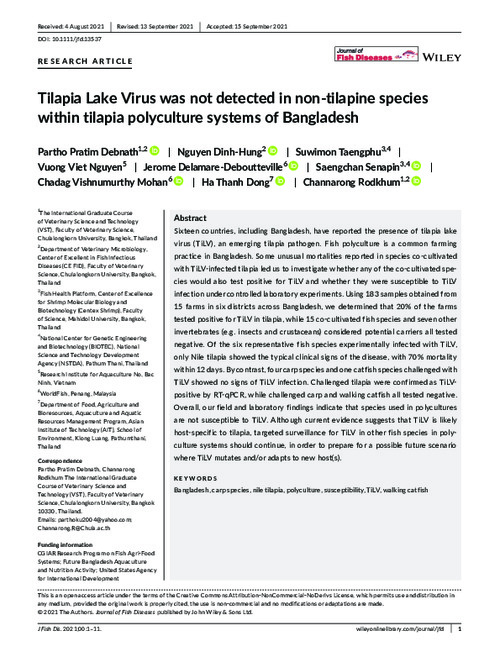Tilapia Lake Virus was not detected in non-tilapine species within tilapia polyculture systems of Bangladesh
Abstract
Sixteen countries, including Bangladesh, have reported the presence of tilapia lake virus (TiLV), an emerging tilapia pathogen. Fish polyculture is a common farming practice in Bangladesh. Some unusual mortalities reported in species co-cultivated with TiLV-infected tilapia led us to investigate whether any of the co cultivated species would also test positive for TiLV and whether they were susceptible to TiLV infection under controlled laboratory experiments. Using 183 samples obtained from 15 farms in six districts across Bangladesh, we determined that 20% of the farms tested positive for TiLV in tilapia, while 15 co-cultivated fish species and seven other invertebrates (e.g. insects and crustaceans) considered potential carriers all tested negative. Of the six representative fish species experimentally infected with TiLV, only Nile tilapia showed the typical clinical signs of the disease, with 70% mortality within 12 days. By contrast, four carp species and one catfish species challenged with TiLV showed no signs of TiLV infection. Challenged tilapia were confirmed as TiLVpositive by RT-qPCR, while challenged carp and walking catfish all tested negative. Overall, our field and laboratory findings indicate that species used in polycultures are not susceptible to TiLV. Although current evidence suggests that TiLV is likely host-specific to tilapia, targeted surveillance for TiLV in other fish species in polyculture systems should continue, in order to prepare for a possible future scenario where TiLV mutates and/or adapts to new host(s)

